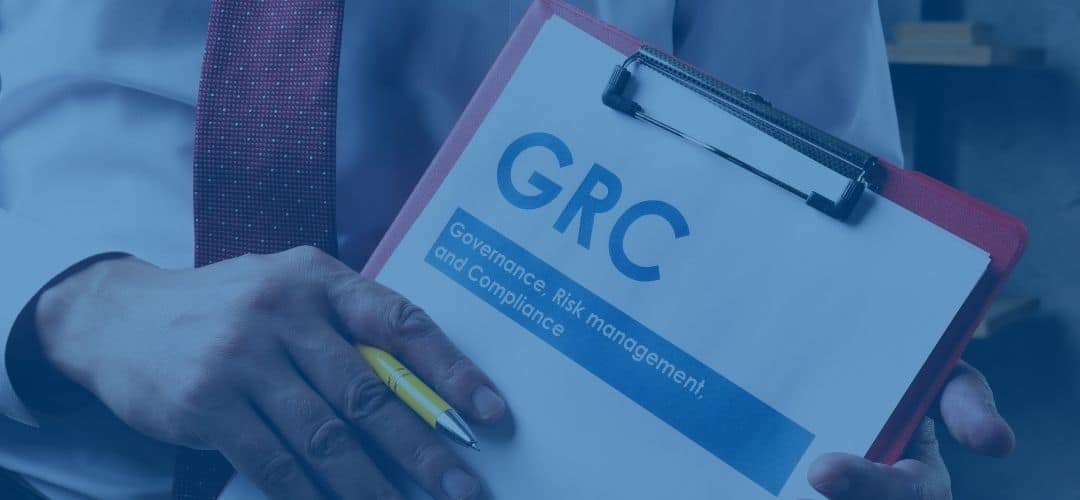
Every business needs a way to achieve its objectives and address risks. Businesses big and small, brick-and-mortar or in the cloud, require strong leadership, a plan to mitigate risks, and oversight of compliance with regulations, laws, and customer requirements. This is a lot to handle, which is why some enterprises establish entire departments to manage these areas. What a lot of businesses misunderstand is that governance, risk, and compliance (GRC) is not something to split up and address individually by department, but rather, by bringing these departments together to work for the greater effectiveness of the business as a whole.
What Is Governance, Risk, and Compliance?
While GRC stands for governance, risk and compliance, it encompasses many more aspects of business. It includes finance, human resources, information technology, legal departments, and even boards and directors. Each department has important responsibilities to the successful operation of a large enterprise or small business. So when you have these departments in place, your business is solid, right?
The problem arises when there are barriers or silos put up between departments. On its own, each section of business might run effectively. Each might be able to mitigate risks contained within its boundaries of operation and responsibility. However, each department is but one organ in the business body—they need to work together for the collective wellness of the company. Some of the most common barriers to GRC include a lack of GRC-designated team leaders, a failure to collaborate between departments, or the absence of an integrated GRC framework. If these barriers are in place or departments are siloed off, there is likely to be redundancy, cost-prohibitive activities, and a breakdown of communication and overall effectiveness.
In cloud computing especially, your teams may not be physically located in the same office, or country for that matter, so an effective and integrated GRC program is essential to reduce costs and increase productivity across all functions of the business. The risk assessment team needs to understand the policies and strategic plan created by those responsible for GRC. Compliance managers should understand the risks and controls in place and how each fits in with policies, customer commitments, business objectives, and laws. Laws and regulations in particular can get sticky with the cloud, as the responsibilities of your business, the cloud provider, and customers may not always be clear. This is precisely why a quality GRC program can be very helpful, and in some cases, necessary.
GRC Solutions in the Cloud
The cloud is no longer an emerging technology. According to Flexera, 99 percent of organizations rely on at least one cloud in 2021. Clearing the way for new methods of computing, the cloud will continue to be a mainstay for technology startups, small and medium sized business, and enterprises alike.
The cloud also provides an efficient way for different areas of any business to communicate, which is an essential part of effective GRC. The GRC process is a continuous cycle of evaluating, developing, implementing, and informing. When used correctly, effective GRC tools can assist in these processes and provide the following benefits:
- Improved efficiency
- Optimized costs
- Detecting, reducing, and preventing risks
- Motivating employees
- Achieving business objectives and customer commitments
- Reducing time and resource commitments to compliance with laws and regulations
- Reducing redundancy and duplicative work by employees responsible for GRC
There are several GRC solutions available to businesses that operate in the cloud. These tools make it possible for all departments to align goals, detect risks and problems, respond to and resolve issues, monitor controls, and integrate solutions, making your GRC program as efficient as possible. A good GRC tool can make all of this easier, but it is still vital for you to take an active role in the process. A tool is only effective when it is wielded by capable individuals and teams. Many GRC offerings include the tool itself and also consulting services for implementing the tool to work in the most effective way for each unique business.
In addition to a GRC tool, a virtual chief information security officer (vCISO) can be a valuable asset to your business when it comes to managing GRC. A vCISO can be tailored to your specific business needs, whether you’re looking to build a security and GRC program from scratch or want some assistance with the program you already have in place.
Your Solution
BARR Advisory offers GRC advisory services tailored to meet the unique risks and needs of large enterprises, small businesses, cloud-based service companies, and more. If you’re an enterprise, your various departments might handle their individual responsibilities proficiently, but it is important for them to come together to develop solutions that increase productivity and reduce costs and risks. If you’re still growing and don’t have departments or GRC-focused team members yet, BARR’s vCISO services can help by acting as an extension of your team until you’re ready to expand.
Whether you need help developing and maintaining a GRC program or are looking for a vCISO to have on-call, we can help by tearing down the barriers that keep your business from achieving optimum efficiency.
To learn more about vCISO services, GRC programs, and how BARR can tailor these solutions to your business needs, schedule your free consultation today.